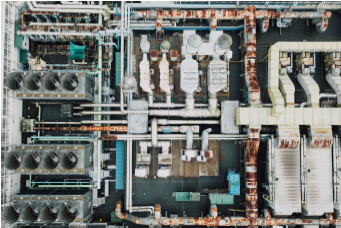 |
 |
 |
Climate change calls for the reduction of greenhouse gas emissions.
CO2 formed in fossil fuels combustion for the production of heat and electric power plays a major role in this framework. For over one century, the Chemical and Process industry has based most of its production processes on raw materials derived from fossil fuels.
Thus, energy transition and decarbonization require an epochal change in the production processes and energy supplies used in industrial chemical processes and, more generally, in the manufacturing industry. Several alternative processes are rapidly coming available for the production of renewable energy and energy vectors, as well as for the decarbonization of industrial processes.
However, the societal call for a rapid implementation of the transition to renewables poses a number of challenges concerning the technological maturity, the economic viability, and the overall sustainability and safety of decarbonized technologies.
This distance learning school, organized by the Italian Association of Chemical Engineering (AIDIC) and by the Association of Researches in Chemical Engineering of Italian Universities (GRICU) aims at providing the fundamentals needed to understand the general context of energy transition and decarbonization in the chemical and process industry, framing the state of the art and introducing to technologies and tools able to support this global change.
The program aims at addressing the needs of Master’s and Ph.D. students and young professionals to develop new knowledge in this field, and to cope with decommissioning programs and opportunities.
All lessons and teaching material will be in English
AIDIC: https://www.aidic.it/
GRICU: https://www.gricu.it/
DCMC - Politecnico di Milano: https://www.cmic.polimi.it
